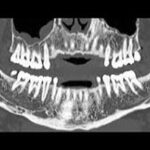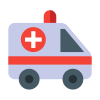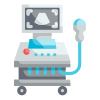Fill out form to enquire now
CT Dentascan
CT Dentascan services are a special X-ray imaging technique used in Dentascan radiology for creating 3-D images with details of the teeth, jaw, and structures surrounding them. This advanced scan will be helpful for the dentist or oral surgeon to evaluate conditions like impacted teeth, loss of bone, and other dental pathologies precisely. Be it a regular check-up or pre-surgical planning, whatever your requirement, CT Dentascan is the non-invasive, highly accurate way to go for complex dental conditions. Images have to be clear and accurate, which our team of experienced radiologists ensures with the help of the latest technology. At Medintu, we also offer dental scans at an affordable price so that good dental care becomes affordable for one and all. Book your appointment with Medintu today for the convenience of our top tier imaging services available at the best dental care centers in Hyderabad. Fulfill your good oral health with the most confidence, using our different yet dependable CT Dentascan services.
Why is CT Dentascan Important for Dental Imaging?
It is important in dental imaging since it generates highly detailed three dimensional images of the teeth, jawbone, and surrounding structures. Compared to the conventional X-rays, which only give limited views, a radiology Dentascan would allow for a thorough assessment; thus, it is indispensable when complex dental problems are being diagnosed. It is highly helpful in tooth positioning, detection of bone loss, and planning of dental implants and infections or abnormalities of the jaw. This will also be of help in the assessment of trauma, tumors, cysts, or impacted teeth that may not be very well visualized through conventional X-rays. Precision and clarity of CT Dentascan help the dentist and oral surgeon formulate a more tailored treatment plan, hence improving results and ensuring safety.
Symptoms Indicating the Need for CT Dentascan
Symptoms that may also call for the CT Dentascan include chronic toothache, swelling or tenderness of the jaw or face, painful chewing or biting, and impaction-most especially of the wisdom teeth. It is also considered in the event of an injury or trauma to the face, since the scan can detect fractures or damage to the jaw and facial bones. With a Dentascan, it is also possible to assess chronic gum infections, abscesses, and alteration of jaw alignment or misalignment. If your chronic sinus problems are affecting your dental work, a CT Dentascan can help in identifying any underlying causes, such as infected molars affecting the sinuses.
Conditions Diagnosed by CT Dentascan
The CT Dentascan is very useful in diagnosing the following pathologies and dental and oral disorders. Diagnosis of the following key conditions is possible:
Impacted Teeth – Location of teeth which have not descended to the normal position, including wisdom teeth.
Dental infection-infection, and tooth and jawbone abscesses.
Jawbone abnormalities: Study of bone loss, Malformation, or cysts of the jawbone.
TMJ Disorders: Conditions of the TMJ, such as arthritis or misalignment of the joint.
Facial Trauma: Determination of any fracture or insult to facial bones following trauma.
Dental Implants: Determination and evaluation of the most favorable position of dental implants by examination of bone density and morphology.
Oral Tumors and Cysts: Identification of benign or malignant growths of the jaws or soft tissues.
Sinus Problems: Diagnosis of sinusitis or other disease that may spread to involve the upper jaw.How Does CT Dentascan Work?
In other words, a CT Dentascan is carried out by means of highly developed X-ray systems that provide sharp, three-dimensional images of the teeth, jaws, and surrounding tissues. The patient sits or lies down in one machine that circles the head. The scanner takes several X-ray images from various angles. These are processed by a computer into cross-sectional images of structures in the oral cavity and facial region. These radiographs offer the dentist detailed information about the bone and soft tissues and other information that may not be as readily available on conventional dental X-rays. These 3D images allow for diagnosis in tooth decay, abscesses, fractures, and other dental or skeletal problems, therefore enabling more accurate planning of treatment. Generally, the scan is fast, non-invasive, and gives accurate details on which the dental professional can rely to make decisions about options for treatment.
Benefits of CT Dentascan in Dentistry
Various advantages exist with CT Dentascan in dentistry: dental imaging at high three-dimensional details of the teeth, bones, and surrounding structures; more precise diagnoses are possible with this facility than with the use of traditional X-rays, since complex issues such as impacted teeth, cysts, infections, and bone loss could be studied in depth. This gives them great visualization to do more precise planning of treatments involving dental implants, root canals, and jaw surgeries, thus minimizing surgical risks. Further, Dentascan CT reveals the hidden problems that might not be evident with normal X-rays, thus improving the treatment accorded to the patients. This would also allow for easy communication with the patient by offering a proper view of the dental condition and the possible remedial measures.
Risks and Safety Considerations
Any imaging modality using radiation, therefore, has risks associated with its use, as is also the case with CT Dentascan. The main concern here is the high dosage of radiation, though a small quantity is used during dental scans in comparison to the rest of the CT scans. Such scans should be avoided by pregnant women whenever possible due to the tendency of the radiation to cause damage to the developing fetus. This will ensure that the dose from repeated radiation exposures over time is reduced to a minimum. It is also the responsibility of the patient to inform the dental professional about any condition or concern beforehand. The Dentists make sure CT Dentascan is performed safely and only when the acquisition of critical diagnostic information is necessary.
- Test Type: CT Dentascan
- Preparation:
- Wear a loose-fitting cloth
- Inform the technician of any medical implants or known allergies.
- Avoid wearing metal objects, including jewelry and accessories.
Follow any specific instructions from your doctor
Reports Time: With in 24 hours
Test Price: Starts from ₹4000 to ₹11000
Does one have a CT Dentascan from one’s home?
Presently, a CT Dentascan requires special equipment available only in healthcare centers or hospitals.
Does a CT Dentascan hurt?
No, it is non-invasive and pain-free.
What is a CT Dentascan?
A CT Dentascan is a special X-ray 3D technology used in dentistry to create detailed images of the teeth, jaw, and surrounding structures.
How does a CT Dentascan differ from an ordinary X-ray?
Unlike typical X-rays taken, which are 2D in view, a CT Dentascan provides images in three dimensions and is more encompassing in its scope of view.
How Long Does a CT Dentascan Take?
A CT Dentascan usually takes up to 10 to 15 minutes depending on the complexity of the case.
What is the procedure to book a slot for an appointment for a CT Dentascan with Medintu?
You can easily book a CT Dentascan through their website at Medintu or through their customer support via phone at +91 9100907036 or +91 9100907622.
Why Choose Medintu for CT Dentascan ?
Medintu provides you with a technically advanced CT Dentascan, done by expertly trained radiologists for correct and effective dental imaging. We provide the latest CT Dentascan services with minimum radiation exposure to ensure the safety and efficiency of the patient. Our network includes the finest dental professionals, proficient in handling all kinds of examination results with pinpoint accuracy in aiding clear diagnosis of ailments. With options for affordable pricing and flexible scheduling, we work to make dental imaging accessible and hassle-free. Medintu will make sure you get the best care, speed, and excellent customer support for you to trust us with your dental image needs.





